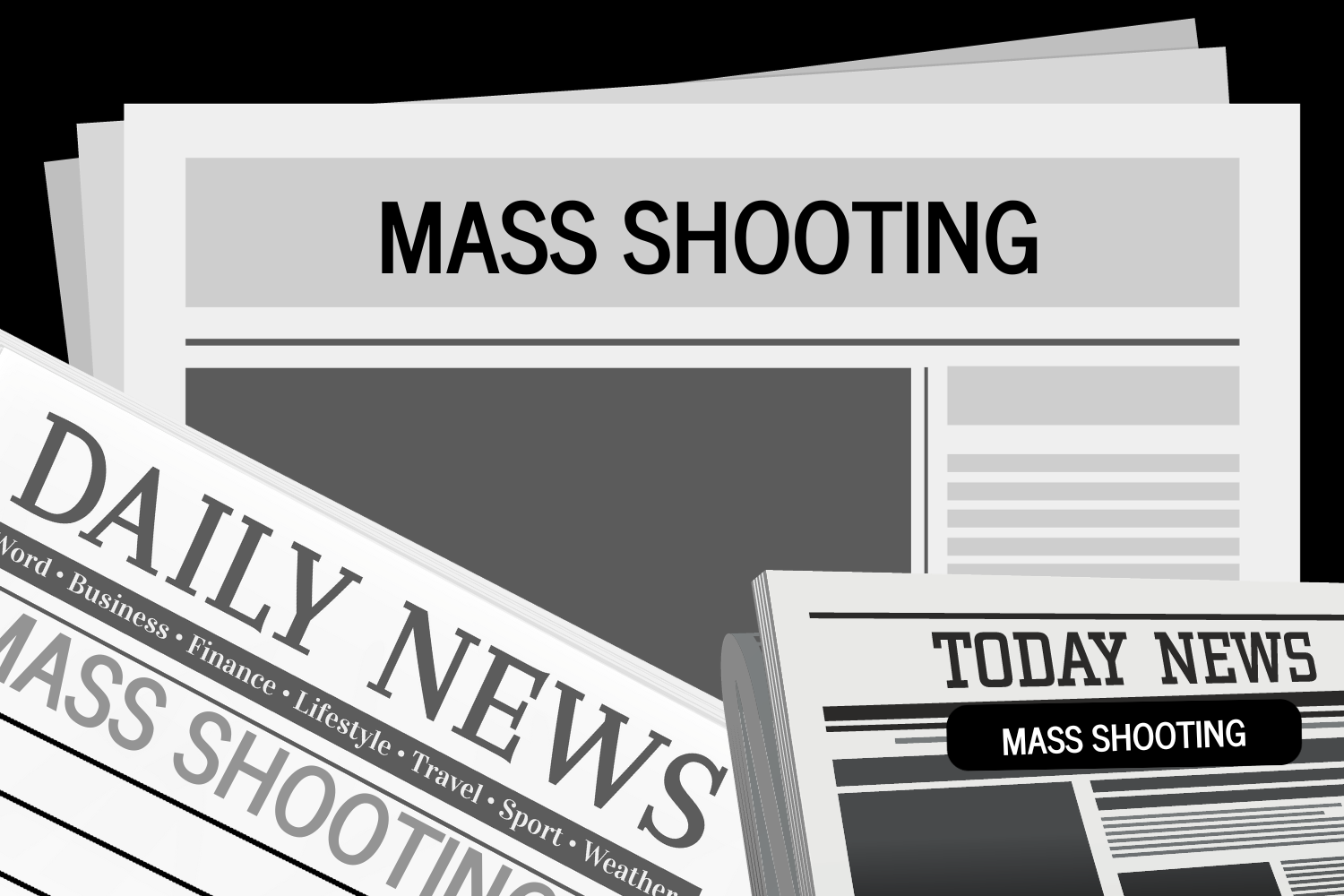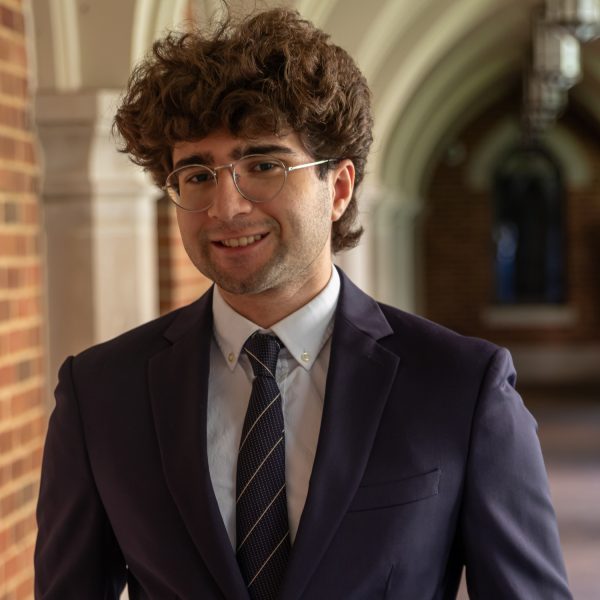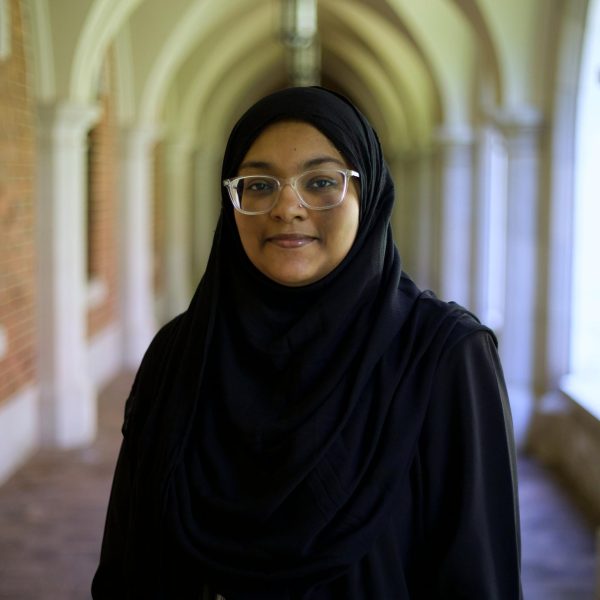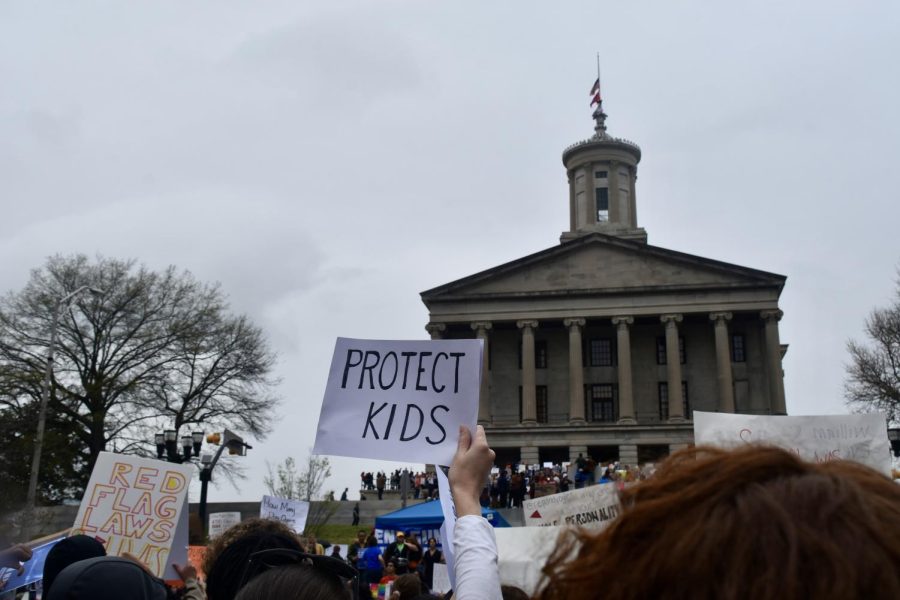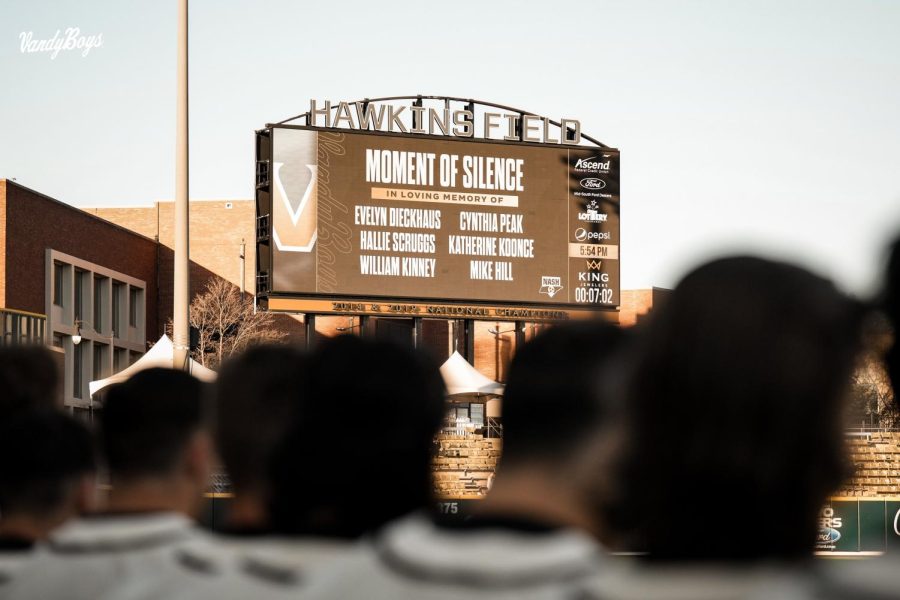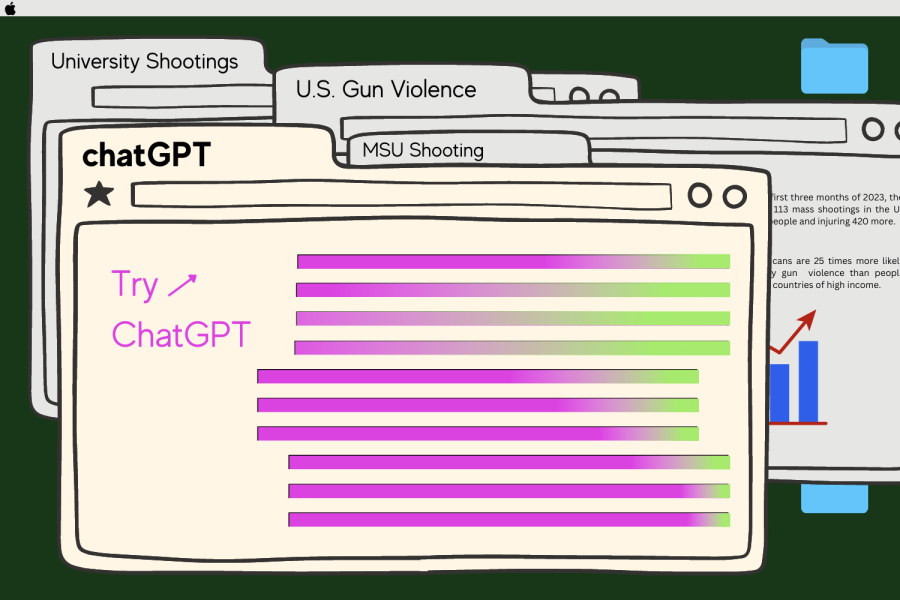Editor’s Note: This piece contains mention of gun violence
On Oct. 25, I received an iMessage notification at 8:10 p.m.: “Active Shooter in Lewiston on Lincoln St. And also at spare time bowling, stay inside. – Bates Campus Safety”
I’d forgotten that I still get notifications from Bates College, where I spent my freshman year. For a brief second, I hoped they were just running another test of their systems but reading those first words made my blood run cold. As I frantically tried checking news sources for information I couldn’t find anything until I got text updates from my friends back there.
Only 46 minutes later, I received a BBC notification that read: “A gunman is on the loose in the US city of Lewiston, Maine, amid reports of at least 10 deaths.”
By the end of the night, 18 people were shot dead in the small, quaint town where I was a student only a few months earlier. Lewiston had become a second home that held a lot of meaning for me, even as I sat in my Vanderbilt dorm room many states away. I couldn’t help but wonder for hours on end whether my old friends and professors were okay. Are they hurt? Are they dead? What about people I met in the city? Are they okay?
Even after learning that those I knew had come out physically unharmed, I couldn’t shake the unease. At the end of the day, the only thing that kept me from witnessing the tenth deadliest mass shooting in U.S. history was the fact that I transferred to Vanderbilt. But even in the relative comfort and safety of our campus, the only thing I kept asking myself was: when are we next?
Instances of gun violence and mass shootings this past year alone have felt so frequent to the point of outright banality. For many, shootings are becoming nothing more than a part of the American cultural and political landscape. It is easy to tune out until you either live through a mass shooting yourself or if it happens somewhere you once lived. Then, it becomes personal. The reality and paradigm that we’ve been placed in is unconditionally terrifying.
Even under the circumstances of the moment, despite not setting foot in Lewiston for almost half a year, the fact that I didn’t witness the horrors didn’t make the fear any less real. I could only think of when and where I could’ve been had I still been there, and if I would’ve been in harm’s way. I began to think of what I would’ve texted my family and loved ones if I was still there. In a sense, mass shootings are like an explosion. Those in its direct vicinity are often directly physically and mentally harmed, while those in the blast radius witness the catastrophe that has unfolded and forever carry a sense of dread wherever they go. That day, I was in the blast radius.
The prospect of gun violence occurring on any university campus — including here at Vanderbilt — is nothing more than a cruel lottery of who, where and when. And if that day were to come to our city, as it did last March at the Covenant School, would we just become victims to the salvos of “thoughts and prayers” from the rest of this country while those impacted would never recover? Would our names be reported on the morning news the next day, become a statistic quickly forgotten and repeated in a speech by a spineless politician? Would our school break its policies of institutional neutrality as the issue “is materially related to the core mission and functioning of the university” while continuing to stay silent about the rest of the violence that plagues our nation? Would those who lost their lives only be remembered as victims of a mass shooting? Would Vanderbilt’s name be remembered as another university devastated by gun violence?
At the end of the day, as long as Vanderbilt remains neutral and refuses to take a clear stance on improving gun control measures, nothing will change. Even when I was miles away and physically disconnected from what took place in Lewiston, I feared that Vanderbilt would be next. You never think that tragedy would befall you or those you care about until it does. And trust me, I get it. I fully understand the true benefits of neutrality and how it encourages and mediates discourse on matters in which a university shouldn’t meddle. I get how free speech is preserved and encouraged through our neutrality on controversies that take place on both the national, and international stage. However, the imminent threat of gun violence negates the need for neutrality, and it should be Vanderbilt’s responsibility to have a clear direction on the matter. Although Vanderbilt does tend to send out emails offering solidarity with peer institutions in the wake of such heinous violence, it’s often too little or too late. It will never be the same as being an active member in the fight against violence. After all, students’ lives are at risk when we remain silent. Current solutions like the panels on gun violence are steps in the right direction, but we ask for and deserve more.
Universities, including ours, need to stand in solidarity with one another when such violence strikes. It’s already been too long for the issue to remain at the back of our minds but now is better than later. Otherwise, our lives are at stake.



